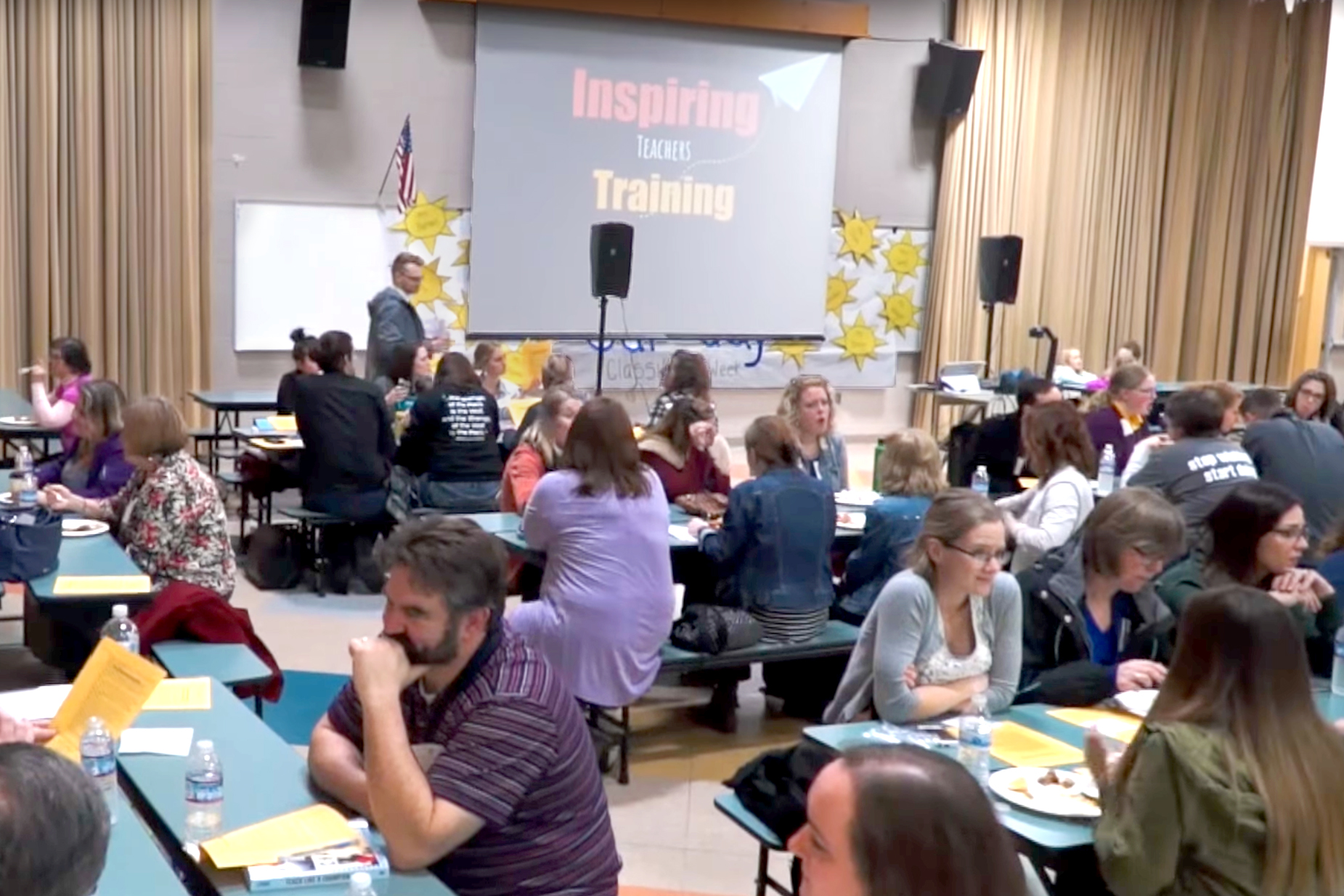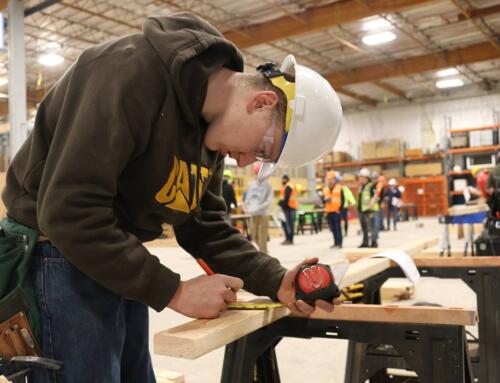One in five Washington teachers leave the profession within the first four years of their teaching career. Of all levels of experience, attrition rates for beginning teachers (at 22.4%) are the highest. According to a 2016 study by the Learning Policy Institute, new teacher induction and support is a major factor. The Kelso School District is doing something about that.
With robust professional learning and mentoring programs, Kelso School District is becoming known throughout the state for their extensive system of support. Particularly for new teachers.
First, second, and third year teachers in the Kelso School District benefit from BEST (Beginning Educator Support Team) and the City University Inspire Grant. Facilitated by Kelso School District and supported by Educational Service District (ESD) 112, BEST is a state-sponsored program to attract, train and retain novice teachers. New teachers are paired with experienced mentors who observe them, offer feedback, and even model teaching on occasion. Then once a month the new teachers come together with their mentors and colleagues in the evening for a group learning session, where they’re fed dinner and paid for their time.
While many districts offer the BEST program, Kelso is one of the few to engage ALL their new teachers in the program. Another way Kelso’s support of teachers stands out is with appointed Teacher Leaders.
“Teacher Leaders are present in most districts,” said Mike Esping, Coordinator of Educational Initiatives and Professional Learning at ESD 112. “What’s different in Kelso is that they’re designated, involved in the monthly professional learning sessions and teachers can call on them for support.” Kelso has 62 Teacher Leaders on the roster, spread across the district.
“They’re breaking barriers of isolation by creating communities of learning,” acknowledged Esping.
The district has been busy all summer putting together pages and pages of professional learning support opportunities for novice and experienced educators, alike, for every subject, specialty and grade level. Most of the learning takes place outside class hours, so instruction for students isn’t disrupted.
“Investing in additional education for our educators not only increases teacher retention and satisfaction, it also elevates student success; which is something all teachers care about,” said Lacy DeWeert, Associate Director of Teaching and Learning, who just celebrated 20 years serving Kelso School District.
In addition to the impressive quantity of learning opportunities for teachers, offerings are also customized.
“All professional development is differentiated based on what the teachers need,” said Kim Yore, Director of Teaching and Learning for Kelso School District. Every month, teachers are asked what instruction they would benefit from most. Subsequent trainings are based on those responses. “We really listen to our teachers.”
[separator type=”thin”]
Kelso’s professional learning support, by the numbers:
- 3 times a year teachers get Advancement Via Individual Determination (AVID) training
- 52 teachers traveled out of town for intensive AVID training this summer
- 3 times a year every Kindergarten through 5th grade teacher gets trained on Full Option Science System (FOSS) kits for Science
- 62 teacher leaders get subject-specific trainings during the year, then they teach the other teachers in their schools
- 9 schools have Instructional Coaches on-site that meet with every teacher, and take extra time with struggling teachers, even helping them teach if needed
- 100% of Kelso teachers kindergarten through 5th grade receive Guided Language Acquisition Design (GLAD) training from the district’s nationally certified trainer.
- 4 teachers on special assignment (TOSAs) in the district provide on-going support for other teachers. Two for English Language Learners (ELL), one in Assessment, and one for Special Education
- 3 times each month trainings are offered for Highly Capable cluster teachers
- 4 times a year teachers receive specialized training on the teacher/principal evaluation process (TPEP) so they understand how they’re being evaluated
- 3 Instructional Criteria Framework and Feedback Specialists (ICFFS) in the district (most districts have 1) provide training in-district and state-wide
- 3 times a year 3rd — 5th grade teachers get trained on Gap Analysis
- New teachers receive continuous training and mentoring throughout the year from experienced teachers through the BEST (Beginning Educator Support Team) and Inspire Program to help them
- 3 times a year trainings are offered on Co-Teaching for Special Ed and General Ed teachers who team up for some subjects
- Instructional Coaches receive monthly training





 ESD 112 equalizes educational opportunities for learning communities through innovative partnerships, responsive leadership, and exceptional programs.
ESD 112 equalizes educational opportunities for learning communities through innovative partnerships, responsive leadership, and exceptional programs.